Interested in high-performance Akiya (空き家, unused house or abandoned house) investment in Japan ?
Here are what you should know. If you are considering buying a akiya house, you need to know the basic knowledge of akiya investment.
There are lots of things you should know about before ever considering purchasing akiya property.
It is in your best interest to educate yourself about akiya to avoid getting into a situation that you regret.
Buying akiya can be quite useful and comfortable, but only if they are properly searched and if you share the same goals with your agent.Some investors find out akiya investment where they have purchased is not what they expected. In many cases, you’ll be disappointed to find out that the renovation cost of akiya is very expensive. There are a few options in akiya investment.But before I get into details, I want to warn you that I can’t teach you how to get rich overnight by akiya investment or find you a dream
akiya house for free near the ocean in Tokyo area. Unfortunately no house is free in Japan.
First of all, since we have been receiving many similar questions, I would like to begin with FAQs.
FAQ
Q: Can a foreigner buy a property in Japan ?
A: Absolutely.
Foreigners can buy a property (both land and building) in Japan
without any special qualification.
You don’t need the permanent residence to buy a property here. You could buy akiya while you are traveling in Japan for vacation with the tourist visa.Ownership rights to land and building in Japan by a foreigner is also permitted just like Japanese citizens.When a registrar has made a registration of ownership with respect to a real property with Legal Affairs Bureau, he/she shall can officially claim the title deeds of the property.
Q:How can I find akiya ?
A:Many of which are in suburban or rural areas, become akiya due to aging population and young people moving to urban areas to live and work.
There are about 8 million vacant properties (houses/apartments) in Japan however, the majority of akiya is not
listed online. For example, my father’s family has two empty houses in Tokushima prefecture but they are not listed for sales.
Thus no one knows our family has two akiya. Having said that, a friction of 8 million vacant properties are listed in akiya banks, usually online, are dedicated to help people
find these empty homes. Akiya banks are not the financial institution but the matching service provided by the local governments.
Unfortunately, they offer very sloppy service because they are run by the local governments.
Perhaps, the best way to find akiya is directly talking to the local agents in the area who are familiar with the local market
and the landlords who may have potential akiya for sales.
Q:Is Japanese government giving away houses ?
A: The short answer is no.
Some local governments in rural areas are offering very generous subsidies and perks to lure families out of the big cities but there is no official program to give away houses
provided by the central government (at least at time of the post)
These akiya houses are very affordable but not free.
Homes in some parts of the country are selling for 500,000 yen (U$5,000) or less.
Q:Is there any requirement to buy akiya ?
A:The answer is no.
Akiya means ’empty house’ (or more like implying ‘unused house’) in Japanese and it also tells you the nuance that the house has been empty for a long time.
You don’t need to be qualified for akiya purchase.These akiya are also open to non-Japanese.
At the end of the day, akiya is traded same as conventional properties.
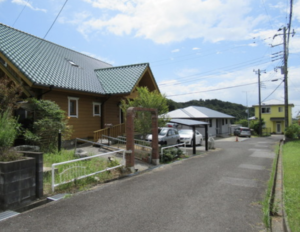
Q:Practically speaking, do I have to have good command of Japanese to buy akiya ?
A: Good question. My answer is yes. (if you don’t speak Japanese, please hire someone who can support you)
Needless to say, there are big global realtors in Japan who can provide
the bilingual service for you ,however, these big players don’t deal with akiya properties.
Akiya market segment is niche and it is not the territory of global realtors. As for small to medium size realtors,
some of them offer the agency service for akiya investment but the number of players is very limited and majority of small to medium-size realtors don’t offer the bilingual service.
Q:Can I find akiya somewhere near Tokyo with water nearby ?
A: You could but it depends on your budget. You can’t get it for free.
For example, you can try Boso Peninsula in Chiba prefecture or Yokosuka city in Kanagawa prefecture.
Both are near the ocean and yet proximate from Tokyo.
https://goo.gl/maps/rCCzXqcbvg52 (Boso Peninsula map)
https://goo.gl/maps/pX5dmdmzVrK2 (Yokosuka map)
Q: Do I have to pay the tax to the Japanese government if I make money from akiya investment ?
A: As long as I have you excited about all the money you could earn by flipping houses for rental or vacation rental, now’s probably the right time to remind you of the bad news
: you’re going to pay taxes on your profits. Your “profits” are whatever is left from the sale of the house, after you subtract out your rehab costs (labor and material), your fixed costs
(commissions, fees, closing cost). Your net income (any profit by renting) is subject to the Japanese income tax. And you have to pay the annual property tax while you keep
the ownership of the property.
Q: Can I sell akiya property after I bought it ?
A: Of course, you can. Akiya can be sold whenever you want to.
Q: What is the tax implication when I sell akiya ?
A: Good question. General rule is that foreign investors are subject to the tax obligation same as Japanese citizens.
If you make money on equity when you exit, you need to pay ‘capital gain tax’.
The capital gains from the transfer of land and buildings are payable. The tax is calculated separately from your usual income tax on other income.
Tax rate depends on the holding period of the property.
Five years or less: Income tax(capital gain tax) is 30% and residential tax is 9.63% total 39.63%
Over five years: Income tax (capital gain tax) is 15% and residential tax is 5.315 % total 20.315%
Here are some important information if you want to buy akiya.
1.Akiya to live (for your own use)
If you are serious about migrating into Japan, perhaps this is the simplest option. You buy akiya for your own use, renovate and live. Some local
governments are encouraging young people to move out of Tokyo and migrate into regional areas.
Japan’s government is considering a new way to get people to consider life outside Tokyo: Pay them to leave.
It was recently reported that the government is mulling giving as much as 3 million yen ($30,000) to people who decide to relocate from the 23 wards of Tokyo and find jobs elsewhere,
starting in the next fiscal year.
2.Akiya for the second house or villa use
If you live in the big cities such as Tokyo and Osaka and want to buy a house at the reasonable price to get away from the stress from busy days, you may wan to buy the second house or villa.
Unlike most major villa holiday destinations and at overseas property exhibitions you will not see ads and meet many of the above (i.e. villa property companies!) in the area where you find a good akiya property. So you don’t have to listen to the typical salesman approach who will paint you a rosy picture, bring the dream to life. After all this is how they make their money. That said, there are some nice areas where you could buy your second house nearby Tokyo such as Boso Peninsula in Chiba prefecture without commiting tens of millions of yen. If you live in Tokyo and want to buy a second house near the ocean and beach, I always recommend Boso peninsula (Kamogawa city, Katsuura city, Minamiboso city, Tateyama city etc). The location is excellent and it takes only 1.5 hours from central Tokyo by car.
You can drive on a highway all through to Kamogawa city from Tokyo and there is no traffic. If you don’t want to drive and rather want to indulge in drinking a beer on the way, there is very comfortable express bus service from Tokyo station. The sea foods and vegetables are nice and fresh (In fact, Chiba prefecture is a major supplier of seafood and vegetables to Tokyo Metropolitan kitchens so nice foods you are eating in Tokyo are often produce of Chiba). Izu peninsula area in Shizuoka prefecture is also very famous for nice beaches and onsen (hot springs) but Izu’s location is not perfect. It takes about 3.5 hours by car to Izu Shirahama beach from Tokyo. In the modern busy life, proximity matters.
In Boso peninsula, they have great surf in the pacific ocean and the quality of sea water is superb. (Believe me you can’t imagine how good the quality of water is in Kamogawa city which is merely 1.5 hours away from Tokyo). In 2020, Tokyo Olympics surfing competition will be held in Katsuura city.
3.Buy akiya property, renovate and turn it into the private lodging (airbnb)
The number of tourists visiting Japan hit a record high in 2018, with the booming tourism industry buoyed by visitors from neighbouring Asian nations such as China, Taiwan and Korea.According to the stats by World Tourism Organization(UNWTO), in terms of number of visitors, Japan is ranked only at 16th place, 6 places behind Thailand. In the meantime, Japan fulfills four major factors which are needed to be successful in the inbound tourism. They are nice climate, great nature, long-standing culture and world-famous foods.
Climate: There are beautiful four seasons. Japan can offer the wide range of climate including nice tropical resorts in Okinawa and breathtkingly beautiful powder snow in Hokkaido.
Nature: Surrounded by mountains and the ocean, you can enjoy the great nature,
Culture: Japan can offer a pop sub-culture such anime and manga as well as KABUKI. There are hundreds of centuries-old shrines and temples all over Japan.
Foods : Tokyo is the world’s no.1 food destination. There are world-famous Japanese foods restaurants everywhere you go, Did you know that Tokyo has more Micheline-starred restaurants than Paris does? The Michelin Guide Tokyo 2019, released this week, has handed out stars to 230 restaurants around the Japanese capital. Of these, 13 have received three-stars — the highest designation. There are 52 two-star restaurants and 165 one-star restaurants. Judging by Japan’s vast potential including world’s best foods, nice yet varied climate
its unique culture and rapidly growing neighbouring economies, it is fair to say Japan will receive far more foreign tourists in years to come. The problem is the shortage of the accommodations.
From June in 2017, the new law regulating private lodging was enacted. It is called minpaku law. Short-term private lodging services (minpaku) has been in a legal gray zone in
Japan, and owners/operators face the risk of running into regulatory hurdles.
Japan’s new home-sharing law was meant to ease a shortage of hotel rooms, bring
order to an unregulated market.
But those uncertainties are clearing after the government passed a new law in
2016 allowing short-term housing rentals under certain conditions. The minpaku law address the shortage issue to promote airbnb type of business however Half a year after Japan’s minpaku law took effect, the market has failed to catch on as expected despite growing numbers of overseas tourists. According to the Japan Tourism Agency, about 25 million people stayed at “city hotels” between June and October in 2018. Assuming around 1 million guests at private lodging facilities during the same period, that is only around 4% as many as stayed in city hotels. The market’s lackluster growth is due in part to heavy regulations imposed on the industry by many local governments. However if you carefully select a reasonable property which is suited for private lodging in good location, you should be able to convert your property into airbnb without many hassles and make money. The minpaku law, the first national legal framework for short-term home rental limits home-sharing to 180 days a year.
Some hosts say the 180 days cap makes it difficult to turn a profit.
But if you buy akiya which is located in the right zoning, you could obtain the hotel license and operate 365 days.
Inbound tourism continues to grow as a record 28.7 million tourists visited Japan in
2017, up 19 percent from 2016, and the government is aiming to have 40 million
visitors in 2020, the year of the Tokyo Olympic. (In fact, the number of foreign visitors has topped
30 million in December 2018, posting another record year despite a number of natural disasters during the course of 2018)
There are concerns that there won’t be enough accommodations, especially in big
cities centers.The hope is that minpaku (民泊, private lodging) will fill in for more traditional
lodgings. Japan had no laws specifically outlawing such services, the Hotel Business Law (旅
館業法)sets out conditions few private homes can meet. Short-term private lodging services (minpaku) has been in a legal gray zone in
Japan, and owners/operators face the risk of running into regulatory hurdles.
Japan’s new home-sharing law was meant to ease a shortage of hotel rooms, bring
order to an unregulated market.But those uncertainties are clearing after the government passed a new law in
2016 allowing short-term housing rentals under certain conditions.
The minpaku law, the first national legal framework for short-term home rental limits home-sharing to 180 days a year.
Some hosts say the 180 days cap makes it difficult to turn a profit.
The new law is supposed to offer more lodging options for foreign visitors ahead
of 2019 Rugby World Cup and the 2020 Tokyo Olympics.
In the meantime, Seven-Eleven Japan Co. is reported to launch an automated
check-in service for minpaku that allows guests
to collect and leave room keys 24 hours a day. The service, Convenience Front Desk 24, will begin at some Seven-Eleven stores in Tokyo on June 15, 2018.The service was developed jointly with Japan’s largest travel agency JTB. The minpaku (as well as conventional hotel) industry has the vast opportunities and is evolving very dramatically.
There are many vacant houses even in Tokyo central locations. You could buy a decent akiya house for 10-20 million yen in 23 wards of Tokyo Metropolitan.
If you can get the hotel license and charge 30,000 yen a night, your gross return against your investment (10 million yen) per year could be as high as 50-60%.
4.Flipping Akiya into the conventional rental property
Fliiping akiya is somewhat different from what is usually done in the US.
In US, usually flipping is the act of purchasing a property, then renovating and reselling it at a profit.
Your buy is someone who wants to live in it or another investor who plans to keep it as an investment. However in Japan, fliiping a house usually means purchasing a very run-down house (usually akiya) and rehab it and rent it out to someone who wants to live.So how to find good akiya for flipping ?I am a real estate specialist but not a guru.You don’t need any “secrets” to find good akiya.Just find a good agent who can find good akiya for you. However, not all agents can do all things, and over the course of your deal.Real state agents are usually paid by the commission they make at the time of the transaction.Because the price of akiya is very cheap, not many agents are wiling to support your deal.(In fact, many agents never get involved in akiya deals as their sales policy simply because of the economic reason) So you may have to work with a few different agents in different capacities.In the conventional home market, the buyer’s agent is the one who is specially suited to help you analyze the local market and who can help you find and buy properties.
There are some agents who specialize in marketing and selling properties. They are called ‘listing agent’.The best listing agents are the ones who focus 100% of their time working with sellers and don’t spend any of their time representing buyers as a buyer’s agent.
Since akiya normally is not widely listed and hidden for various reasons, you must dig them up in the market by talking to local agents who are familiar with the local markets and landlords.
Especially if you want to buy good akiya somewhere in rural ares, you must find a good local agent who specializes in akiya properties. (However, one thing to keep in your mind is, as I said before,
very limited number of agents are willing to support akiya transaction and local agents are not usually able to support foreign investors due to the language barrier and the different business practice)
One of the best way to find good agents would be through referral.Once you find a good agent who can support akiya investment, please give them the direction on the area you want to invest and your budget to purchase a property and also rehabbing.Usually house flipping in the US is referred as a short-term strategy i.e. buying and renovating a house and sell it at higher value in the short term.A flipper usually needs to get out in less than six months.However, in Japan, it is not a very common practice.In Japan, we buy akiya house (an abandoned house) and renovate it into a rental property.Unlike in US, house flipping investment is a rather unusual investment and not touted in the market.
It may not be as lucrative as US’s flipping.
It is a long-term investment seeking the income gain rather than the capital gain. (we could expect the capital gain but chance is slim)
Thus you want to be more careful when you buy a property.
You don’t need to stick to akiya for flipping but they are naturally very affordable to come by. There is no cheap akiya house in Tokyo Metropolitan
but if you are willing to travel for two to three hours, you could find a decent akiya house for 3 million yen. (you also need to allow the budget to rehab)
Risks you have to watch when you purchase akiya
1 Renovation cost
Akiya is usually very run-down. Even if you manage to get large akiya say for 500,000 yen (U$5,000), the renovation cost could be substantial.
The renovation cost could be as much as 25 million yen to 30 million yen depending on the size and condition.
2 Village rule
Many rural villages look welcoming people who are migrating into their village, however, the social life in rural Japan could be tough. Don’t take their marketing lines as face value. There are many unwritten rules behind the scene which you have to follow set by old generations. For example, regular cleaning of the common area, attending wedding party (even if you barely know them) , attending funeral, attending very unproductive meetings etc. Obviously those activities are, on face value, all voluntary but in reality they are not. You are not paid for the cleaning. If you are a foreigner, the situation could be very different.
You could ignore these rules (because it is not the law) but once you become an outsider, you will inevitably invite social ostracism. I have read a number of stories where even Japanese young couples failed to move into a rural village due to old rules/customs which we don’t have in the big cities. Some people (old dads) just don’t like you because you are from a big city.
3 Not all villages are welcoming foreigners
Some old school Japanese are not able to mingle with foreign people. It is not the racism but they just don’t know how to handle these people. It is sad reality. If that is a case, even you agree to the price, your bid could be rejected without any reasonable explanation. You have to find a ‘foreigner friendly village’.
Bottom Line
Akiya is very affordable but also very run-down. The Key for success in akiya investment is to locate a hidden gem through the agent who knows the local market well. Also be extremely wary of the renovation cost. And do the math. The government is not giving away akiya but if you spend good time searching, you could find nice akiya with good condition.
Our Consultation Service
Spot consultation is available for those who are interested in buying an old Japanese property.
Spot consultation fee starts from 50,000 yen per two hours (plus tax). Consultation over Internet telephone is possible for those who are distant from Tokyo.
If you are seriously interested in buying akiya, please contact us. Consultation fee starts from 50,000 yen per two hours (plus tax). We provide the following consulting service for akiya investment as well.
1) Akiya search service
100,000 yen (plus tax) per project. We will look for an appropriate akiya for you.
It requires time consuming process.
Finding a good akiya is not as easy as you might think.
If you buy a wrong property in a wrong location, your investment could be a disaster.
We will not search akiya for free.
If you are seriously interested in buying a Japanese old house, please contact us.
Other Helpful Articles
Buying a house in Japan ? Here’s all-too common mistakes to avoid
Can foreigners buy a property in Japan ? : Fundamental rules when acquiring a property
Akiya (abandoned house) for sale, 50 mins from Tokyo : Is it really a good investment ?
Toshihiko Yamamoto
Real estate investing consultant and author.
Founder of Yamamoto Property Advisory in Tokyo.
International property Investment consultant and licensed
real estate broker (Japan).
He serves the foreign companies and individuals to buy and sell
the real estates in Japan as well as own homes.
He holds a Bachelor’s degree in Economics from
Osaka Prefecture University in Japan
and an MBA from Bond University in Australia
Toshihiko’s book, “The Savvy Foreign Investor’s Guide to Japanese Properties: How to Expertly Buy, Manage and Sell Real Estate in Japan”is now out on Amazon, iBooks (iTunes, Apple) and Google Play.
About the book
Amazon.com Link

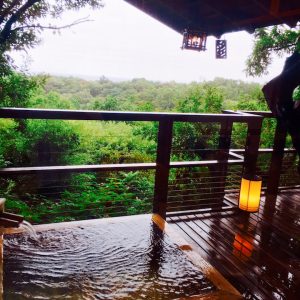
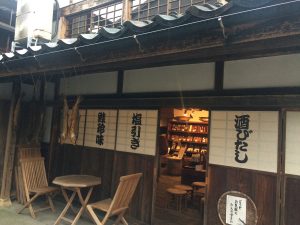
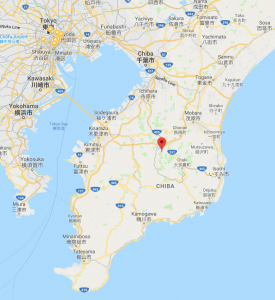
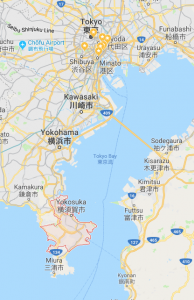
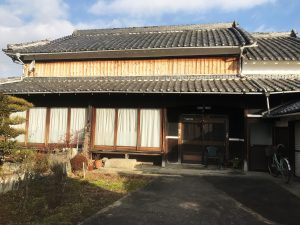
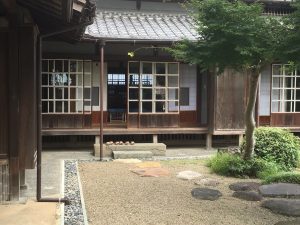
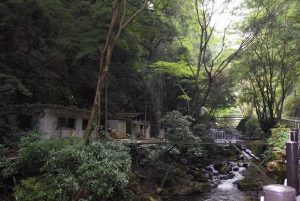
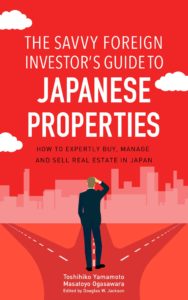
3 comments for “What to know about Akiya (unused house) investment in Japan : Options you should be aware. Is it really free ?”